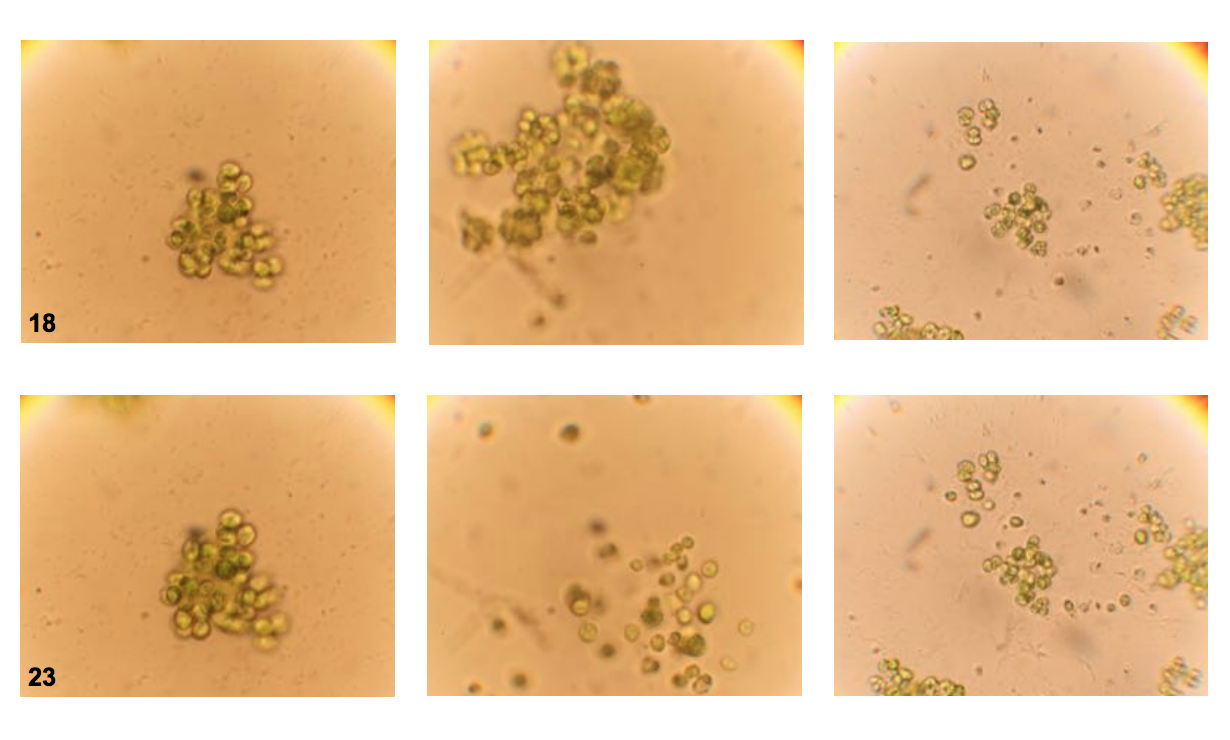Unraveling paradoxes

Pope Francis and the Vatican hosted about 50 scientists last week for a conference titled, “Transformative Roles of Science in Society: From Emerging Basic Science Toward Solutions for People’s Wellbeing.”
The Pope urged the scientists to use their knowledge for the benefit of all humanity, especially those who are most often disregarded by most of society.
“I would like to stand before you as the advocate of the peoples that receive only rarely and from afar the benefits of vast human knowledge and its achievements,” the Pope said, “especially in the areas of nutrition, health, education, connectivity, well-being and peace.”
Steven Benner, a renowned chemist and a pioneer in the field of synthetic biology, was one of those scientists. His talk—titled “Science Addressing Questions Not Easily Addressed by ‘the’ Scientific Method. The Origins of Life”—was well received and sparked some lively conversation. But he also admits it wasn’t a perfect fit for the conference theme.
“It’s a bit embarrassing,” he says with a laugh. “I was one of the only scientists there who could not come up with a clear application of value to human society.”
That’s certainly not to say that Benner’s presentation was of no value. His talk addressed the origins of life on Earth, focusing on the role that RNA (ribonucleic acid, an essential building block of life) played in the process—more than 4 billion years ago.
Benner also discussed old-school thinking on traditional scientific method—which explains why “the” is in quotation marks in the title of his talk. Benner says modern science needs to get past old methods and instead be willing to try new strategies, particularly when running into dead ends. He calls it the process of “unraveling paradoxes.”
Benner, recipient of a $5.3 million grant from the John Templeton Foundation to unravel those paradoxes regarding the emergence of life, is founder of the Foundation for Applied Molecular Evolution.
He discussed last week’s visit to the Vatican with ORBITER.
ORBITER: We hear you had an audience with the Pope during the conference.
Steven Benner: Yes. I like to say I met Pope Francis, he did not meet me. (Laughs.) We all had about an hour with him. He gave a speech in strong support of science, which is interesting, considering it’s coming from a religious organization that has had an imperfect relationship with science. To have him come down very strongly on science and scientific method is quite significant.
Your presentation was titled, “Science Addressing Questions Not Easily Addressed by ‘the’ Scientific Method. The Origins of Life.” Why is the word “the” word be in quotation marks?
The scientific method is a statement about universal physical laws, or at least laws about something you can look at here and now. These are not statements about historical events that occurred 4 billion years ago, where you don’t have any opportunity to go and inspect it.
How life emerged is not really necessarily a question in what we would call “science.” It’s a natural history question, sort of like asking, “How did Napoleon invade Russia?” So what you end up doing is spending a lot of time going around questions, asking what is plausible and what can be supported based on indirect evidence. You don’t often have the ability to set the sort of hypotheses that you do in a canonical science fair project.
I wrote a book on this. The question there was whether or not alien life exists. The kinds of ways you approach that question are quite indirect compared to how you approach things for which the questions are more easily recognized as scientific.
So what do you think about alien life? Seems like the more we learn about exoplanets, the more likely life exists somewhere.
Well, you can have it both ways, right? You can say the more we find earth-like planets, the more chance we have. But then, we’ve failed to actually detect life elsewhere, so you could argue that the probability is dropping.
In my book, it’s how do you go about asking the question? Life originated on Earth with very low-probability events, so even though we may find many Earth-like planets, the probability of life occurring on any one of them is just as low as it was on Earth.
What’s come out of the Templeton project is a model for how and when life emerged. That model requires a couple of the events on Earth that we now have good reason to believe occurred, based on geological records. But the probability of them having occurred is rather low. After my talk, one of the participants said, “Even though we have all these extra-solar planets, the events that you described as being necessary for the emergence of life on Earth seem to be sufficiently infrequent that to have them occurring elsewhere doesn’t seem likely.”
There are so many extra-solar planets, it’s hard to believe that the Earth is the only place to host life. But if you want to make some statement about the likelihood of alien non-terrestrial life, you have to come up with some model for how frequently life is to emerge. And if you try to make that estimate based on what we know about life’s emergence on Earth, then you have to ask, How does life emerge on Earth? Once you’ve gone through that exercise, you come up with a relatively low number.
Explain what you mean by “unraveling paradoxes” when it comes to your research on the origins of life.
The field of origins goes back 60 or 70 years. People have long looked at the problem exactly as they did a half-century ago. It turns out that in 50 years the problems have changed, but people continue to go in research directions that are no longer appropriate.
The Templeton Foundation put all this money into a program set up to not follow these past methods, but to think anew about the paradoxes—that life could not possibly have emerged because it’s too complicated, the environment is too un-conducive, and a lot of other reasons.
Here’s one paradox: RNA is supposed to have been the first genetic molecule, where RNA must work in water. However, RNA is unstable in water. So you put those two statements together—RNA must work in water, but RNA is unstable in water—and you have a paradox. Those statements are incompatible with an origin of life model involving RNA.
You have to resolve those paradoxes, and the Templeton grant helped us resolve several of them. That’s how this model emerged—a model for how life would have emerged by way of RNA.
Sounds like you thrive on tackling these paradoxes.
Yes. The existence of a paradox allows you to focus on premises that are apparently wrong somewhere. If you don’t have these paradoxes as a focus, you just sort of wander, doing what you’ve done before based on your cultural directions. In contrast, if we say, wait a minute, RNA’s first, but RNA’s unstable in water, then we go back and say something’s wrong.
This focus on paradox is a way to break you free from your cultural predilections and get you going into a new direction, which is more productive because it’s focusing on the actual problem.
One of the problems that we have is that RNA has a couple of parts. You have the bases which carry information, and they are, in the words of a chemist, “reduced”—meaning they don’t have many or any oxygen atoms—whereas other parts of the molecule are very oxidized. So, one of the major questions is, how do you get the building blocks for RNA when some of them require reducing conditions to form, and others require oxidizing conditions to form? That’s a paradox.
A team at the University of Colorado in Boulder looked at elements present on the surface of the moon and the surface of the Earth and came up with a model which shows how you do it. But that model constrains you to looking at events that occurred 4.36 billion years ago. The model says that if you want to have life originally by RNA first, it had to have occurred 4.36 billion years ago, because that’s when the conditions were available to resolve the paradox of having both oxidized and non-oxidized parts of the molecule.
Since the event was held at the Vatican, there must have been religious overtones, with many, including the Pope, believing that God was behind those processes.
The Pope spent about an hour with us, and I did not get the impression that he was a creationist. He’s a modern liberal Pope. [Francis has said he believes creationism and evolution are both correct, and are both compatible.]
Now, some Cardinals were asking about the definition of “life.” But they weren’t trying to come up with a statement that life emerged by a process that would not be recognized by a natural series of events. And I find that quite interesting.
Some people would call those events of 4.36 billion years ago the formation of the “building blocks” of life, rather than life itself. Now, I suppose “life” can be a vague term.
We try not to make it vague. What we mean is the origin of Darwinism—that is, the ability to replicate where the replications are imperfect, but where the perfections are themselves replicable. A property of a collection of molecules is that it has an ability to be replicated. It’s actually kind of easy; when you grow rock candy in your kitchen, you see the crystal growth, and that could be viewed as a replication of the growth of the crystal. The crystal has lots of defects, so you could argue that the growth of the crystal is imperfect. But the defects in one crystal do not get transferred to the growth of another. So the idea that you can have replication where the replicants are imperfect, but where the imperfections are themselves replicable, is a rather special feature of a chemical system.
It’s complex science, but we do have actual examples in the laboratory now—not natural examples, but chemically synthetic examples—where RNA is able to catalyze the copying of RNA with the errors themselves replicable. At that level, the definition of “life” is not all that difficult to manage, if you believe Darwinian concepts. You’d have a clear understanding of what peculiar feature of what a chemical system must have in order for you to call it “living.”
People understand that research for a cure for cancer is a science with value for society. If your research can definitively explain the origin of life, where’s the “so what” in that?
It’s a bit embarrassing, but I was one of the only ones there who could not come up with a clear application of value to human society. And since that’s what the event was about, it was a bit of an issue. But it’s an interesting question: What if we did understand how life emerged? I don’t know how to cure a disease with that, but I’d put the question back to you: Why do you care?
I think it’s a question we all ask at a gut level: How did it all begin? I think everybody wonders about that, whether you’re an atheist or a Christian or whatever.
Well, here’s why it matters. It goes back to your initial question about “the” scientific method. This becomes important in science student training. You’ve got a model about something that happened 4.36 billion years ago, and you got there by breaking free of the cultural constraints that have dominated this field for 50 years. And you’ve done so by a process that focuses on paradoxes. That’s quite useful when you’re training students who will go back and study cancer. They have to break free of the half century of biases.
There was a time, 30-35 years ago, that everybody “knew” that ulcers were caused by stress and spicy food, right? And now we know that they’re not. That was a big fight then, but it required people to think outside the box. That’s a very useful lesson for teaching students.
It encourages the push toward discovery, and to not look at something as a wall that we can’t break through.
That’s right. People approach research as if there is a wall they can’t break through, and they consider that a sufficient reason to not even try—to continue doing business as usual. But that’s easy; that’s what people generally do, scientists and non-scientists. So the notion that you can take a field where the community despairs about making breakthroughs, and actually make a breakthrough—that’s important for everybody who is able to interact with the science that’s behind that process. And it encourages people to learn that science.
Say you have an age-old question which the community has despaired ever finding an answer. If you can say that by a certain scientific process—if you learn this kind of chemistry and geology and planetary science—you will be able to solve that problem, then you do encourage students to do the hard work. It’s not easy to do. Even chemists don’t think it’s easy!
The post Unraveling Paradoxes appeared first on ORBITER.





